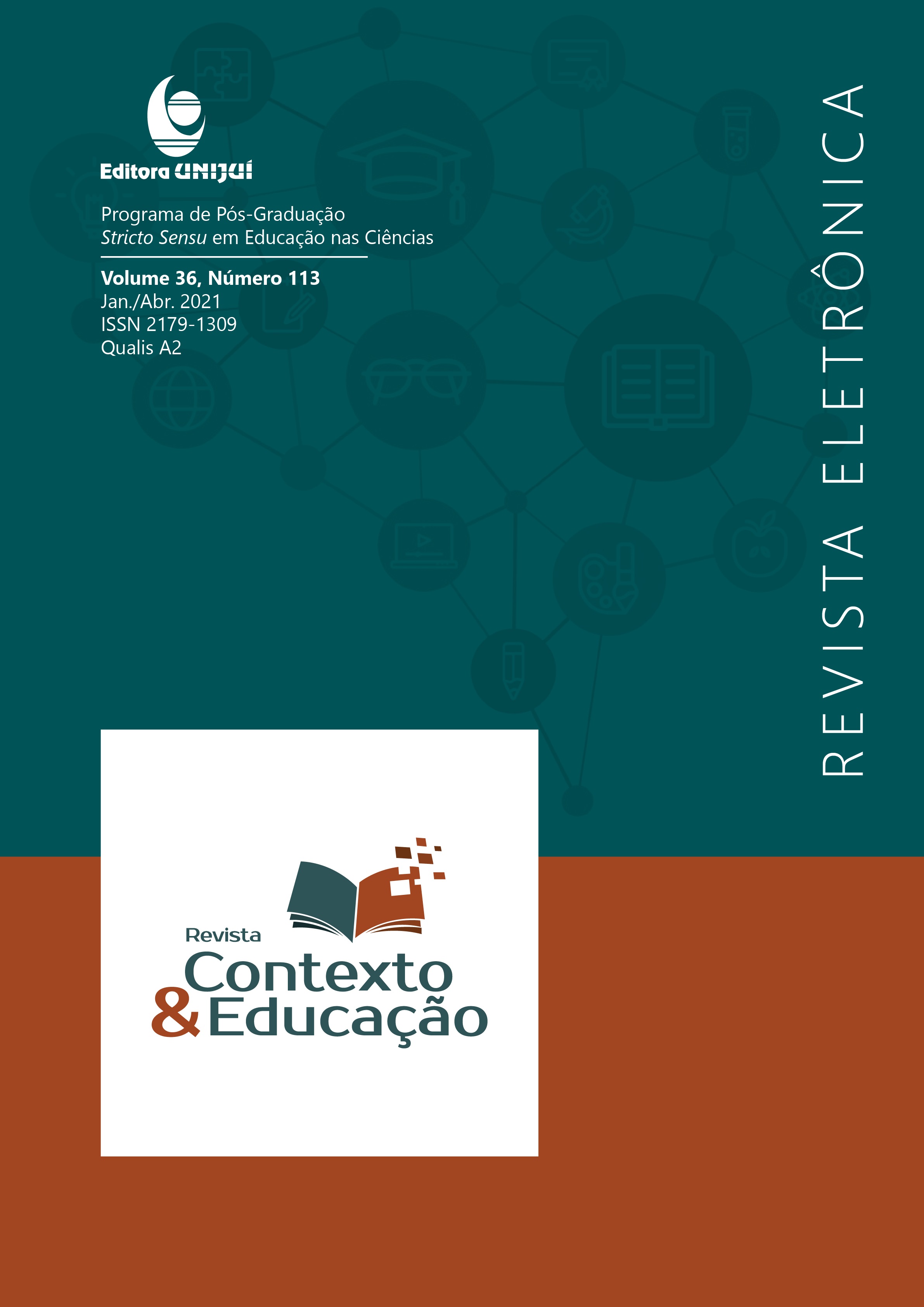A FORMAÇÃO DE PROFESSORES EM CIÊNCIAS E MATEMÁTICA NA EDUCAÇÃO DO CAMPO A PARTIR DAS EXPERIÊNCIAS EM ESTÁGIOS E TRABALHOS DE CONCLUSÃO DE CURSO
DOI:
https://doi.org/10.21527/2179-1309.2021.113.352-372Palavras-chave:
Experiências Pedagógicas. Ensino de Ciências. Ensino de Matemática. Educação do Campo.Resumo
Dois momentos apresentam papel central na formação de professores: o Estágio Curricular Supervisionado e o Trabalho de Conclusão de Curso. Na Educação do Campo tais percursos formativos são pouco explorados quanto à sua natureza e capacidade de refletir a identidade dos estudantes. Este artigo origina-se das experiências pedagógicas de professores no contexto de um Curso de Licenciatura em Educação do Campo nas áreas do conhecimento Ciências da Natureza e Matemática e tem como objetivo discutir características e natureza da formação de Licenciandos em Educação do Campo tendo como objetos de análise suas produções e experiências nestes dois componentes curriculares, desenvolvidos na perspectiva da Pedagogia da Alternância. A pesquisa é de natureza qualitativa e utiliza como material empírico produções escritas dos TCCs e dos relatórios de estágio supervisionados e orientados pelos autores ao longo dos últimos anos. Observa-se que o trabalho, decorrente do modo de vida camponês, percorre as produções tanto em Ciências quanto em Matemática. Enquanto em Ciências da Natureza os estágios dão ênfase à possibilidade de articularem temáticas externas ao currículo a conteúdos canônicos do Ensino de Ciências, na Matemática são as tendências teórico-metodológicas que expressam o diálogo com os temas do cotidiano nos estágios e TCCs analisados.
Downloads
Publicado
Como Citar
Edição
Seção
Licença
Ao publicar na Revista Contexto & Educação, os autores concordam com os seguintes termos:
Os trabalhos seguem a licença Creative Commons Atribuição 4.0 Internacional (CC BY 4.0), que permite:
Compartilhar — copiar e redistribuir o material em qualquer meio ou formato;
Adaptar — remixar, transformar e criar a partir do material para qualquer fim, inclusive comercial.
Essas permissões são irrevogáveis, desde que respeitados os seguintes termos:
Atribuição — os autores devem ser devidamente creditados, com link para a licença e indicação de eventuais alterações realizadas.
Sem restrições adicionais — não podem ser aplicadas condições legais ou tecnológicas que restrinjam o uso permitido pela licença.
Avisos:
A licença não se aplica a elementos em domínio público ou cobertos por exceções legais.
A licença não garante todos os direitos necessários para usos específicos (ex.: direitos de imagem, privacidade ou morais).
A revista não se responsabiliza pelas opiniões expressas nos artigos, que são de exclusiva responsabilidade dos autores. O Editor, com o apoio do Comitê Editorial, reserva-se o direito de sugerir ou solicitar modificações quando necessário.
Somente serão aceitos artigos científicos originais, com resultados de pesquisas de interesse que não tenham sido publicados nem submetidos simultaneamente a outro periódico com o mesmo objetivo.
A menção a marcas comerciais ou produtos específicos destina-se apenas à identificação, sem qualquer vínculo promocional por parte dos autores ou da revista.
Contrato de Licença (para artigos publicados a partir de outubro/2025): Os autores mantém os direitos autorais sobre seu artigo, e concedem a Revista Contexto & Educação o direito de primeira publicação.


